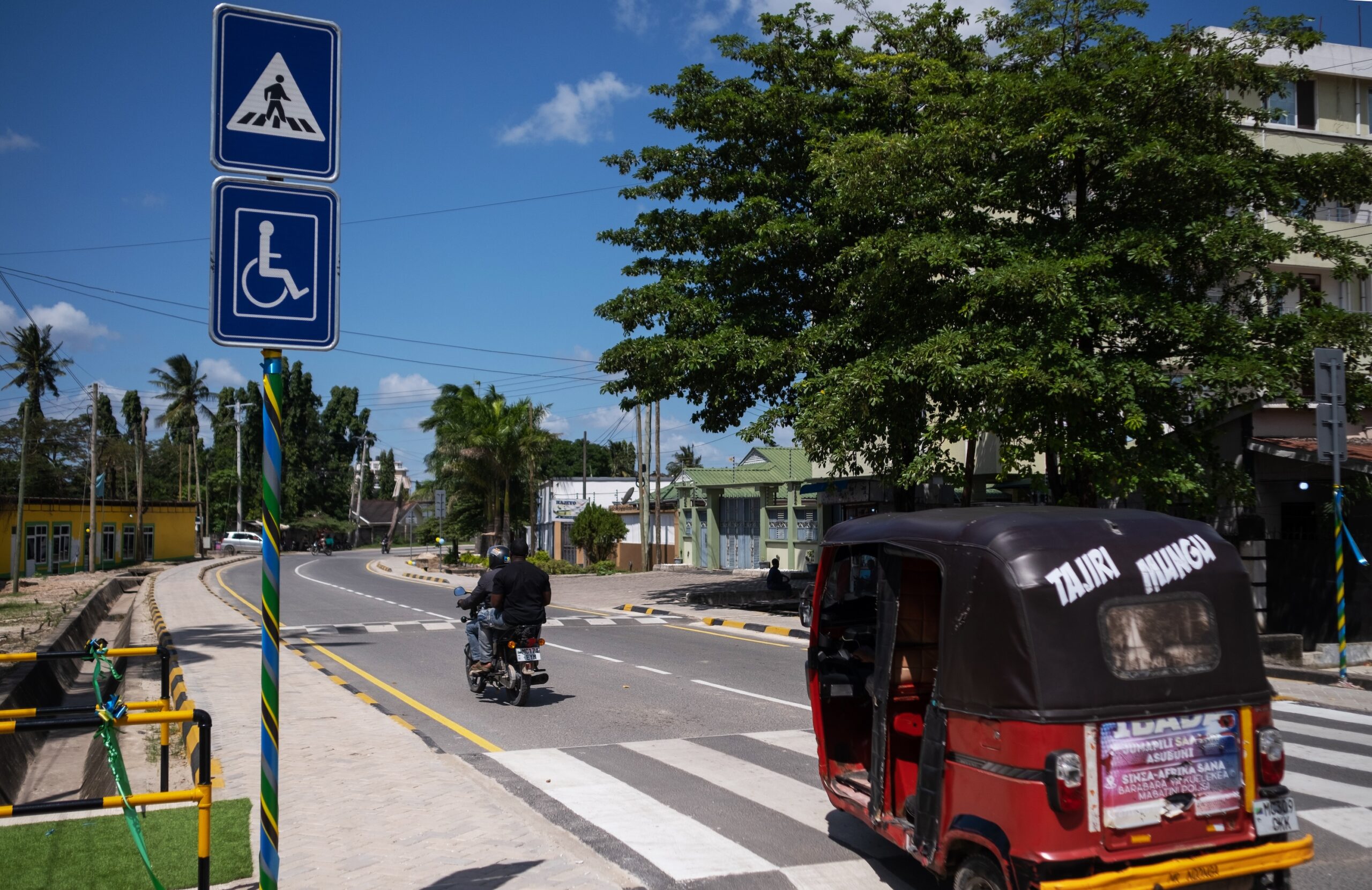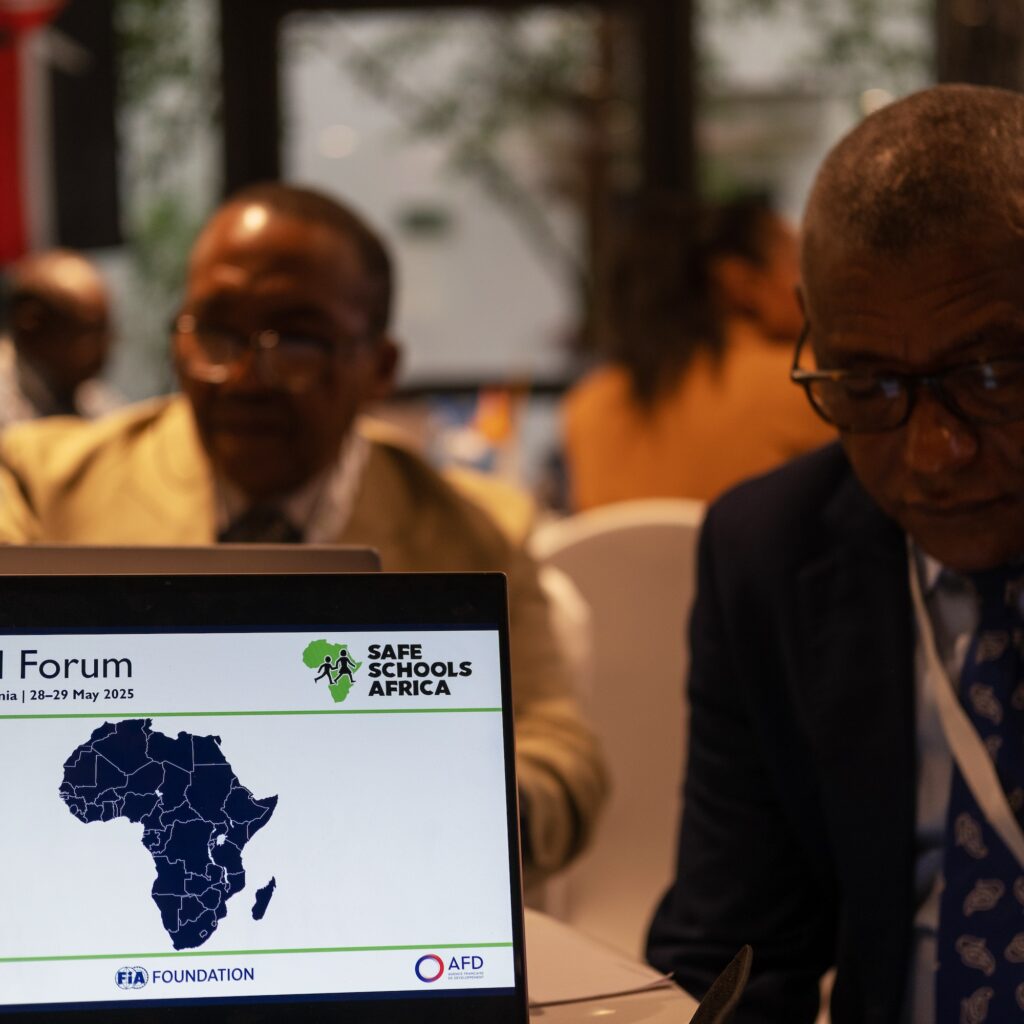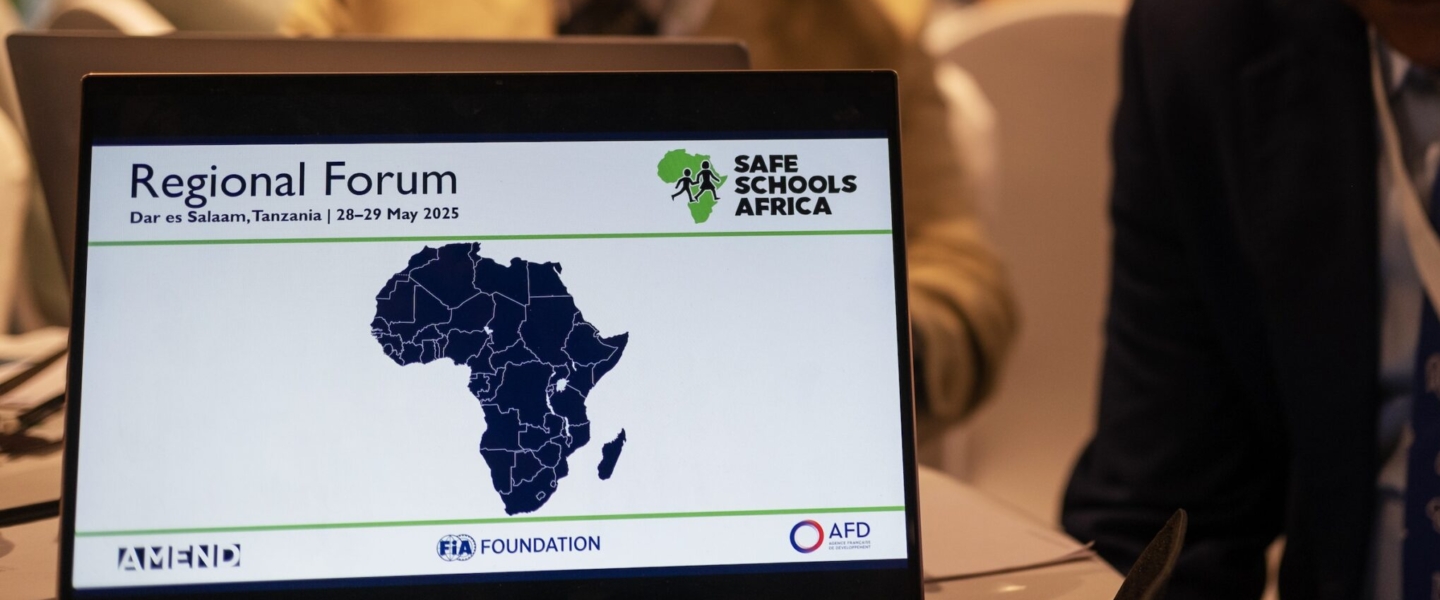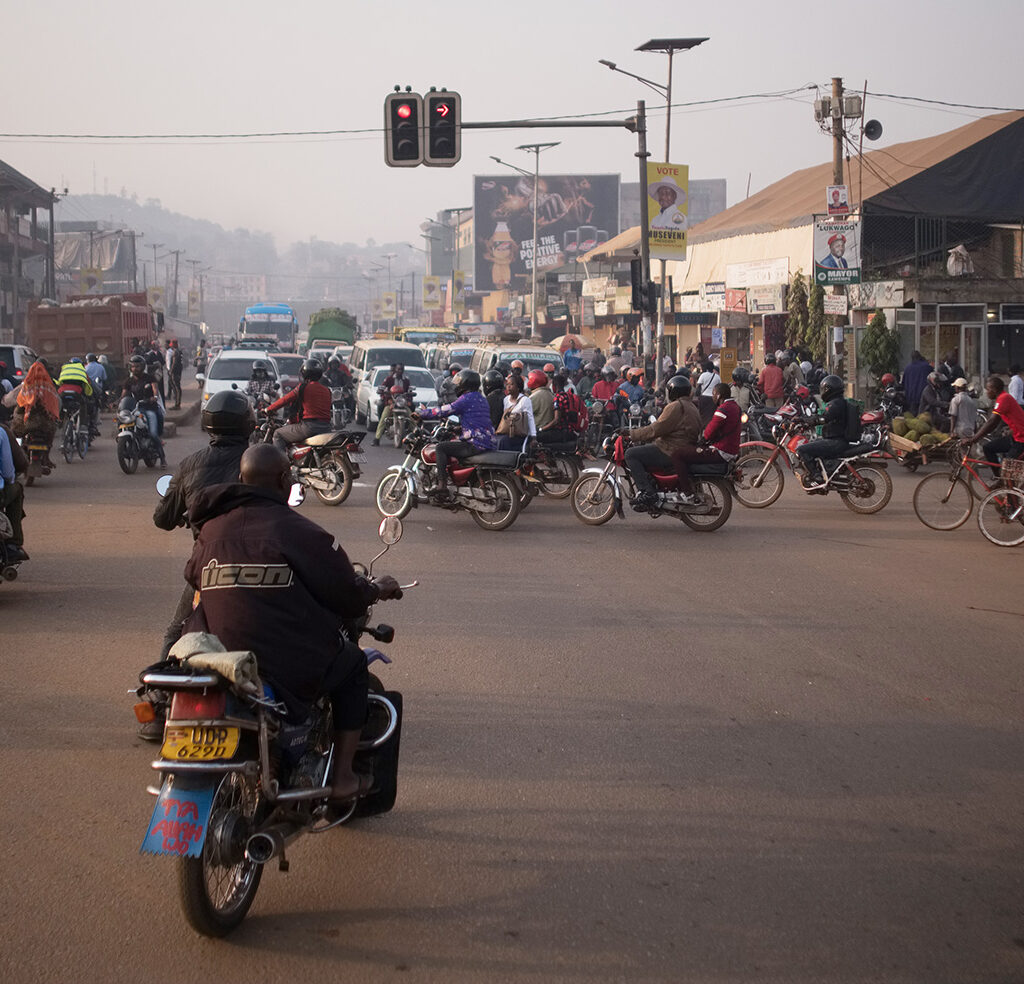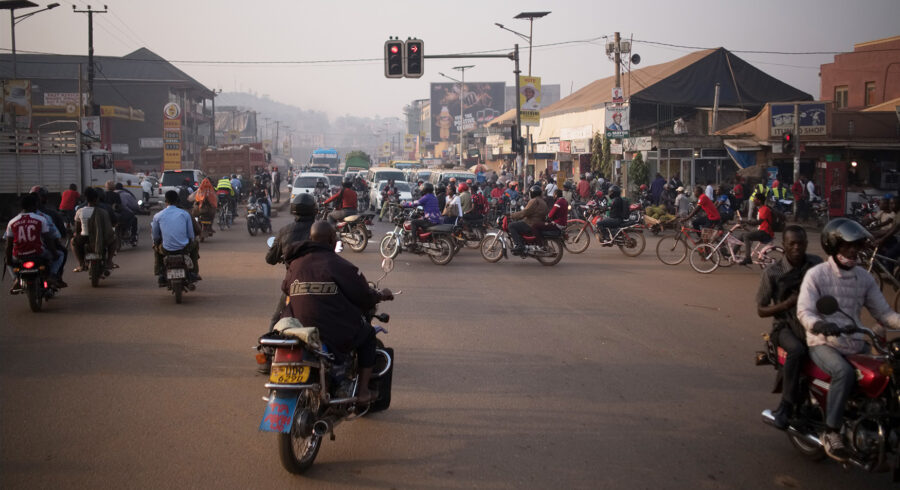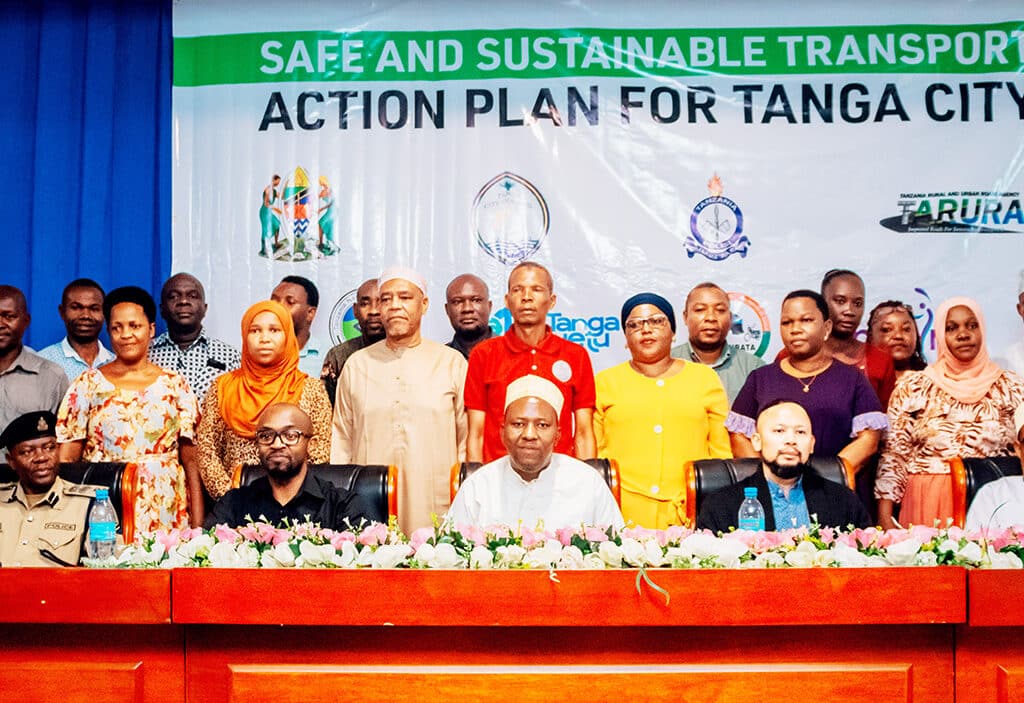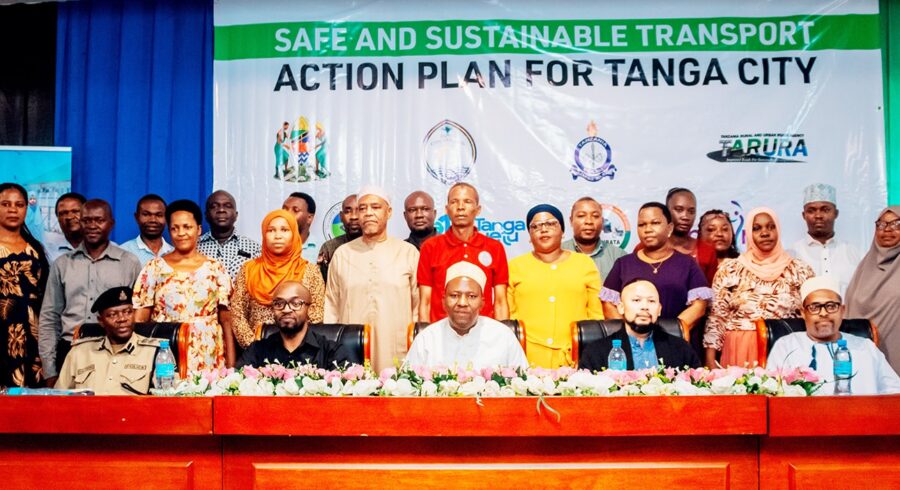28–29 May 2025, Dar es Salaam, Tanzania
On the 28th and 29th of May 2025, Amend and its partners in the Safe Schools Africa programme – the FIA Foundation and the Agence Française de Développement (AFD) – held a Regional Forum in Dar es Salaam, Tanzania. The two-day event brought together government road agencies, development banks, civil society, and technical experts to share lessons and shape the future of child-focused road safety on development bank financed roads projects in Sub-Saharan Africa.
The proceedings included a day of presentations and discussions at the Hyatt Regency Dar es Salaam, followed by a ribbon-cutting ceremony at a school where new lifesaving infrastructure had just been installed. The Forum brought together over 80 participants from across Africa. Seven countries were represented by government delegations, eight roads projects were featured, and three development banks—the World Bank, the African Development Bank, and AFD—took part in the discussions.
Setting the Tone: A Vision for Safer School Journeys
The Forum opened with remarks from Ayikai Poswayo, Programme Director of Safe Schools Africa, and Simon Kalolo, Amend’s Tanzania Country Manager, who welcomed delegates and introduced the Forum’s objectives: sharing practical experiences, reflecting on progress, and expanding the reach of proven approaches to prevent child road traffic injury.
Saul Billingsley, Executive Director of the FIA Foundation highlighted the ethical imperative behind Safe Schools Africa’s work. “Why should children be dying because of the actions of adults driving motor vehicles?” he asked. “Do they not have a right to safe mobility?” He urged governments and donors alike to keep children’s safety front and centre in all road design decisions.
In a keynote address, guest of honour Eng. Rogatus Mativila, Deputy Permanent Secretary for Infrastructure at Tanzania’s President’s Office for Regional Administration and Local Government, reinforced the urgency of scaling this work. “The initiatives led by Safe Schools Africa are essential for integrating child-friendly infrastructure into road projects,” he said. “They help ensure systemic change that protects our children’s safety.”
Lessons from the Ground: What Works, and Why
Delegates heard from project teams working across five countries. Presentations included case studies from Tanzania, Mozambique, Zambia, Ghana, and São Tomé and Príncipe, highlighting how infrastructure changes, informed by community consultation and child-centred design, have already improved designs and safety around some schools.
In a passionate speech, Dr. Nkechi Dike, an emergency physician from Ghana framed child road traffic injury as both a health and justice issue. “These children getting hit are walking to school, to markets, helping their parents. Every life lost is a 100% loss for a family. We cannot accept that. No child should lose their life while learning how to live it.”
From Talk to Action: What Was Announced
The Forum was not just a discussion space – it resulted in a series of concrete, public commitments from national governments and development partners. These included:
- Tanzania: TARURA, one of Tanzania’s two roads agencies, committed to applying people-centred design principles across all new road projects, with a specific focus on school areas.
- Kenya: KeNHA, the Kenyan roads agency, confirmed that they will request Safe Schools Africa support on three new road projects, with more expected to follow.
- Zambia: RDA, the Zambian roads agency, committed to integrating school area safety improvements in two development bank-financed road corridors.
- Mozambique: INATRO, Mozambique’s transport regulator, committed to the inclusion of road safety audits and design standards that account for school zones and vulnerable users in the new national road code.
- Madagascar: The Agence Routière Madagascar, Madagascar’s roads agency, and the TYPSA Foundation, made a commitment to commence work with Safe Schools Africa to improve safety on Madagascar’s roads.
- AfDB: The African Development Bank expressed interest to work with Safe Schools Africa to improve child safety in bank-financed projects in Tanzania and perhaps elsewhere across the continent.
- World Bank: The World Bank’s Tanzania office announced a new project—Safe Roads to Primary and Secondary Schools in Tanzania—to be implemented by Amend, building on the principles and experience of Safe Schools Africa.
- SSATP: The Africa Transport Policy Program (SSATP) announced a new partnership with Safe Schools Africa to develop capacity building for road project teams across the region.
Safe Schools Africa Pioneer Award
The Safe Schools Africa Pioneer Award was presented to TARURA – the Tanzania Rural and Urban Roads Agency. The award recognized the commitment and innovation of TARURA in adopting the people-centred design methodology in its projects, leading the way for other roads agencies across Africa.
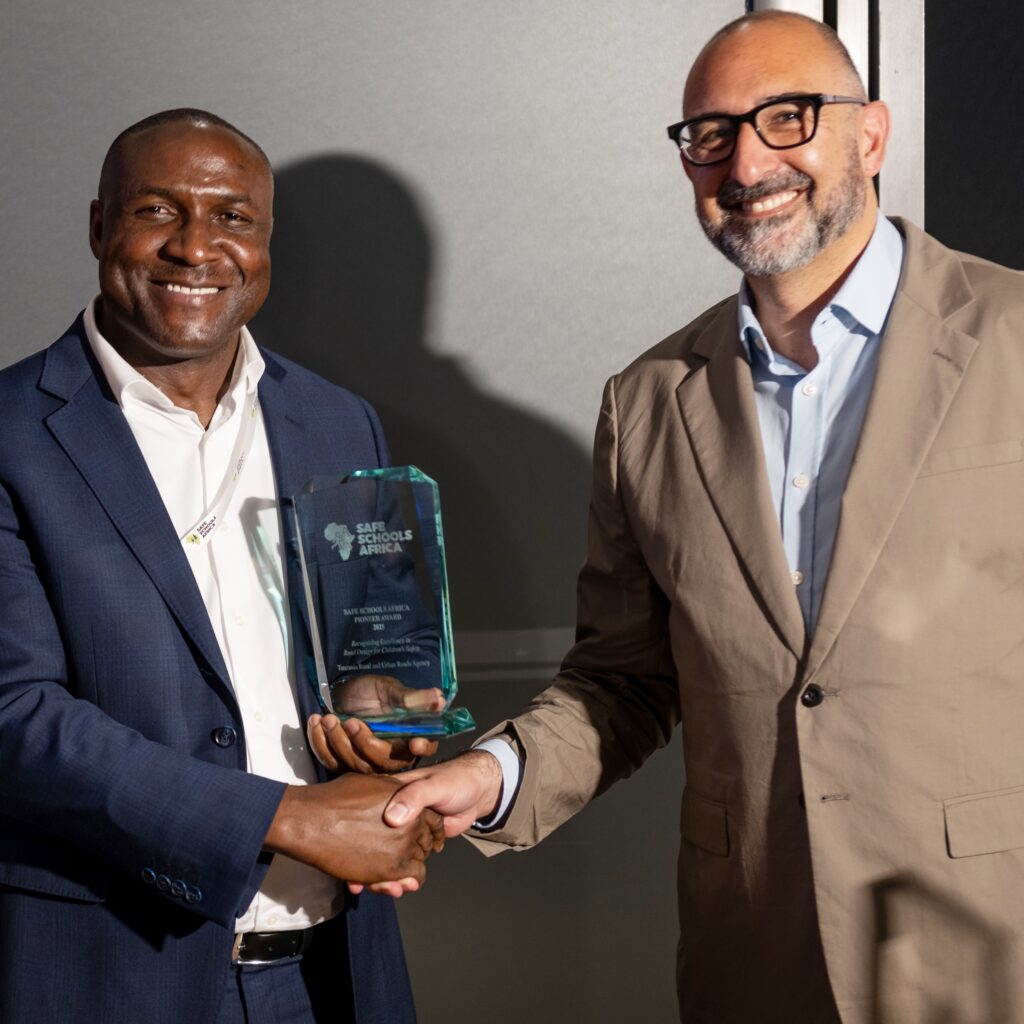
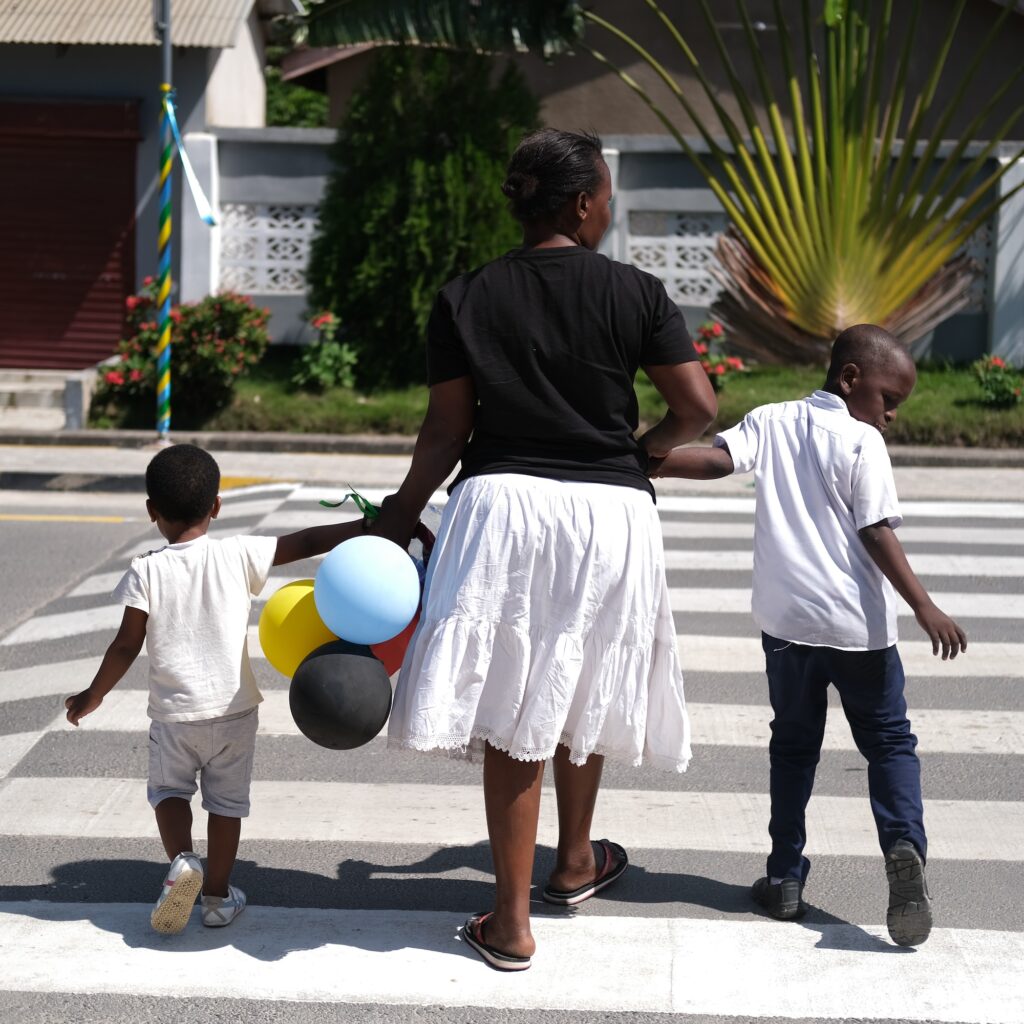
Seeing It in Practice: A School Transformed
The second day of the Forum brought participants to Sinza Maalum Primary School, a school for children with special needs located in a high-risk area of Dar es Salaam. A new Safe School Zone had recently been completed there, including footpaths, raised crossings, speed-calming features, and signage.
For many participants, the ribbon-cutting event was a very significant part of the Forum – demonstrating how even modest infrastructure upgrades, when designed with children in mind, can transform a school’s environment. Students, teachers, and parents spoke about the change: a safer, calmer, more respectful space for learning and community life.
Looking Ahead: Safer Roads for All
The Forum concluded with closing remarks from Amend’s Executive Director, Jeffrey Witte. “This group can go back to their countries and bring this work into even more projects,” he said. “Together, we can keep more children safe.”
Safe Schools Africa is led by Amend with support from the FIA Foundation and AFD. It works alongside governments and development partners to provide technical assistance on road projects and to ensure that child safety is built into the roads that are being financed and constructed today. As of mid-2025, Safe Schools Africa is active on eight development bank-financed road projects, with demonstration projects in several others. See a PDF here for a full description of the Safe Schools Africa program.
The Regional Forum made clear that this is just the beginning. The tools are available. The partnerships are in place. And the momentum is growing.
